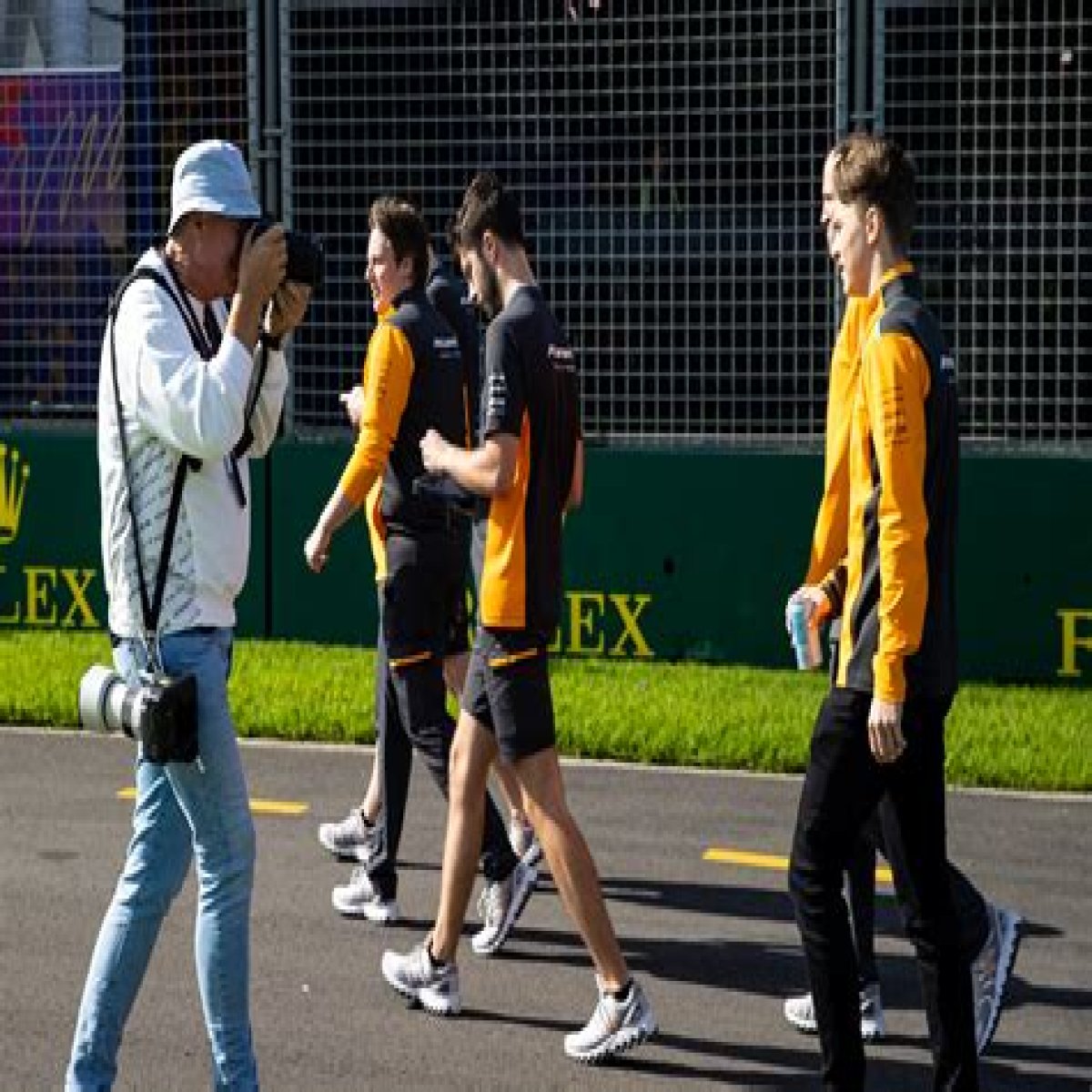The world of Formula 1 is not just about high-speed racing, adrenaline-pumping action, and cutting-edge technology; it's also about the people who bring these exhilarating moments to life. At the center of this spectacle is the F1 presenter, a crucial figure who captivates audiences with their charisma, knowledge, and ability to connect with fans. From the glamorous pit lanes to the intense paddocks, F1 presenters are the bridge between the sport and its passionate followers, providing insights, interviews, and behind-the-scenes stories that enrich the viewer experience.
As the voice of Formula 1, these presenters play a significant role in shaping the narrative of each race weekend. They not only inform fans about the latest developments on the track but also delve into the personal stories of the drivers, teams, and the sport itself. With their extensive knowledge of racing and engaging presentation style, F1 presenters enhance the excitement and drama that unfolds during each Grand Prix, making them an integral part of the F1 experience.
In this article, we will explore the life and career of a prominent F1 presenter, diving into their biography, the skills required for the role, and the impact they have on the sport. We will also answer some commonly asked questions about what it takes to become an F1 presenter and why they are so vital to the Formula 1 community. Buckle up as we take you on a journey through the fast-paced world of Formula 1 presenting!
What is the Biography of the F1 Presenter?
To understand the role of an F1 presenter, it’s essential to look at their background and how they arrived at this prestigious position. Many F1 presenters come from diverse backgrounds, often with experience in journalism, broadcasting, or motorsport. Their journey typically involves a combination of education, passion for racing, and networking within the industry.
| Name | [Presenter's Name] |
|---|---|
| Date of Birth | [Date of Birth] |
| Nationality | [Nationality] |
| Education | [Education Background] |
| Career Start | [Year Started] |
| Notable Achievements | [Achievements] |
What Skills Does an F1 Presenter Need?
Being an F1 presenter is not just about having a passion for racing; it requires a unique set of skills that make them effective in their role. Here are some critical skills that successful F1 presenters often possess:
- Strong Communication Skills: The ability to convey information clearly and engagingly is vital.
- In-depth Knowledge of Motorsport: A thorough understanding of Formula 1, its rules, and its history is essential.
- Interviewing Skills: Presenters often conduct interviews with drivers and team members, requiring them to ask insightful questions.
- Adaptability: The fast-paced nature of F1 means that presenters must think on their feet and adapt to changing situations.
- Charisma: A magnetic personality helps to engage viewers and create a connection with the audience.
What Does a Typical Day Look Like for an F1 Presenter?
The life of an F1 presenter can be both thrilling and demanding. On a race weekend, presenters have a packed schedule that includes:
- Pre-Race Preparations: This involves researching the teams, drivers, and track conditions, as well as preparing for interviews.
- Live Coverage: Presenters provide live commentary, analysis, and updates during practice sessions, qualifying rounds, and the race itself.
- Post-Race Interviews: After the race, presenters conduct interviews with drivers and team principals, gathering insights and reactions.
- Engaging with Fans: Many presenters also interact with fans through social media or live events, enhancing the F1 experience.
How Do F1 Presenters Prepare for Races?
Preparation is key for any F1 presenter. They often dedicate several days leading up to a race to ensure they are well-informed and ready to engage with the audience. This preparation includes:
- Studying Performance Data: Analyzing previous race performances, team strategies, and driver statistics.
- Listening to Team Briefings: Attending team briefings to hear about the latest developments and strategies.
- Building Relationships: Establishing rapport with team members and drivers to facilitate smoother interviews.
What Challenges Do F1 Presenters Face?
While being an F1 presenter is undoubtedly exciting, it comes with its share of challenges. Some of the most common challenges include:
- High-Pressure Situations: The fast-paced nature of F1 can create intense pressure, especially during live broadcasts.
- Dealing with Controversy: Presenters often have to navigate sensitive topics, such as driver conflicts or team disputes.
- Technical Glitches: Live broadcasts can be unpredictable, and presenters must be prepared for any technical issues that arise.
Why is the F1 Presenter Important to the Sport?
The role of an F1 presenter extends beyond mere commentary. They are crucial in promoting the sport and enhancing its appeal to a global audience. By connecting fans to the action and providing exclusive insights, F1 presenters help to build a loyal fan base. Their ability to convey the excitement, drama, and intricacies of Formula 1 makes them invaluable ambassadors of the sport.
Conclusion: The Unsung Heroes of Formula 1
In conclusion, the F1 presenter plays a pivotal role in the world of motorsport. With their unique blend of knowledge, charisma, and communication skills, they bring the excitement of Formula 1 to life for millions of fans around the globe. As they navigate the challenges of live broadcasting and engage with the audience, F1 presenters continue to be the unsung heroes of this thrilling sport, ensuring that the essence of Formula 1 reaches the hearts of racing enthusiasts everywhere.
Demi-Leigh Tebow: A Glimpse Into The Lives Of Her ParentsUnraveling The Mystery: What Happened To Melissa Lucio?Exploring The Depths Of Chmura Mark: A Multifaceted Persona
F1 presenter Natalie Pinkham Irish Mirror Online
Thompson, Sky Sports F1 Presenter FORMULA 1 photos Main
Who is Naomi Schiff? All you need to know about the Sky Sports F1
